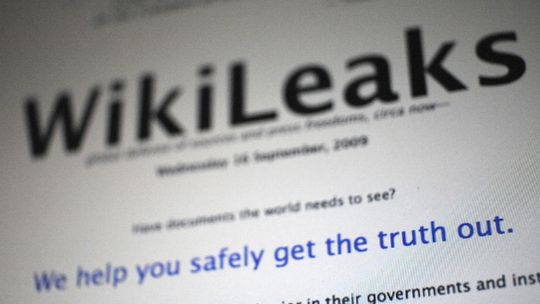
It's been two days since WikiLeaks founder Julian Assange promised publicly to hand over CIA hacking tools that it had leaked earlier in a trove of documents, to the technology companies that have been affected by the alleged CIA hacking. While this Assange's selfless move could help Apple, Google, Microsoft and many more tech firms to protect their users from cyber-attack, neither Google nor Microsoft has received any such information yet, reported Forbes.
Although none of these companies have given any public statement, sources close to the companies told Forbes that neither of the companies has received any data or information about the said vulnerabilities as of Saturday from WikiLeaks.
Sources close to Google's security staff said that there had been no contact from Julian Assange. This move from Assange has now evoked suspicion, as one of the sources also said to Forbes that there was now concern that WikiLeaks had duped the public and pulled another PR stunt with no substance.
However, one security expert who had reviewed the leaked CIA files said on Thursday that there were actually multiple vulnerabilities mentioned in the documents that would need to be addressed immediately. One Microsoft spokesperson also informed that there has been no contact from WikiLeaks' side and WikiLeaks had not answered any of the requests for comment by Forbes.
"Our preferred method for anyone with knowledge of security issues, including the CIA or Wikileaks, is to submit details to us at secure@microsoft.com so we can review information and take any necessary steps to protect customers," added the Microsoft spokesperson, reported Forbes.
Samsung or Apple has not commented on the matter yet, although, both of their devices were allegedly compromised according to the leaked documents.
Meanwhile, security expert Marc Maiffret, the chief technology officer at BeyondTrust, posted an analysis of the Windows implant on Friday, which shows that he has uncovered some Windows malware. This indicates that WikiLeaks might have mistakenly left it uncensored.
Maiffret asked WikiLeaks to uncover the malware code but also noted that it should "help defenders and work with technology companies affected by the vulnerabilities and exploits to produce patches for customers."
"It is of course very time consuming and not always easy to analyze all of this technical data to figure out what parts are malware/implants vs. vulnerabilities/exploits. This is why they seemingly redacted all of that type of data in general except for this mistake here that I wrote about."









